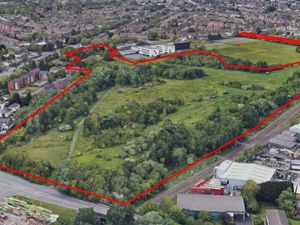GCSE results day 2023: Grade boundaries explained and how exams are being marked
GCSE students have been warned that results will be lower this year than last year.

Students will discover the results of their GCSE exams on Thursday, with exams marked in the same way as before the pandemic.
It comes after A-level grades were released last week, where the proportion of top grades were less than last year but higher than pre-pandemic levels – this is because there is still protection in the grading process following the disruption of Covid.
According to Ofqual, the regulator of qualifications, exams and assessments in England, this year's national results will still be lower than last summer, and more similar to the grading in 2019.
Rachel Taylor, associate director at Ofqual, said that exam comparisons should be made with those taken before the pandemic.
In a blog post she said: "It will be most meaningful to compare this year's results with 2019, the last year that summer exams were taken before the pandemic.
"As in any year, results for individual schools and colleges will vary. The approach to grading means that results for individual schools and colleges are highly likely to be lower than last summer."
We explain the boundaries
How are exams graded?
The traditional letter grades, A - U, were replaced with numbers in 2014. GCSE exams are now graded from one to nine.
9 and 8 – equivalent to an A*
7 – equivalent to an A
6 –equivalent to a B
5 – equivalent to a low B or high C
4 – equivalent to a C
3 – equivalent to a D or high E
2 – equivalent to an E or high F
1 – equivalent to a G
U – remains the same; ungradeable.
What are grade boundaries?
Grade boundaries are the minimum marks needed to achieve a certain grade. Although they are used for consistency in exam marking, grade boundaries can be lowered if an exam was particularly hard. Whether to lower the grade boundaries or not is decided once the papers have been marked. If a large majority of students are shown to have struggled with the paper, the grade boundary might be reconsidered.
Other factors include feedback from examiners about the particular paper, question papers from previous years, previous statistics, and data on the previous achievements of the students taking the exam.
Over the years, grade boundaries were often released a few days before results day. They are now released on the same day as the results in an effort to reduce stress in students who were trying to use the grade boundaries to predict their results.
Here are the links to grade boundaries for each exam board, which will be released on Thursday:





